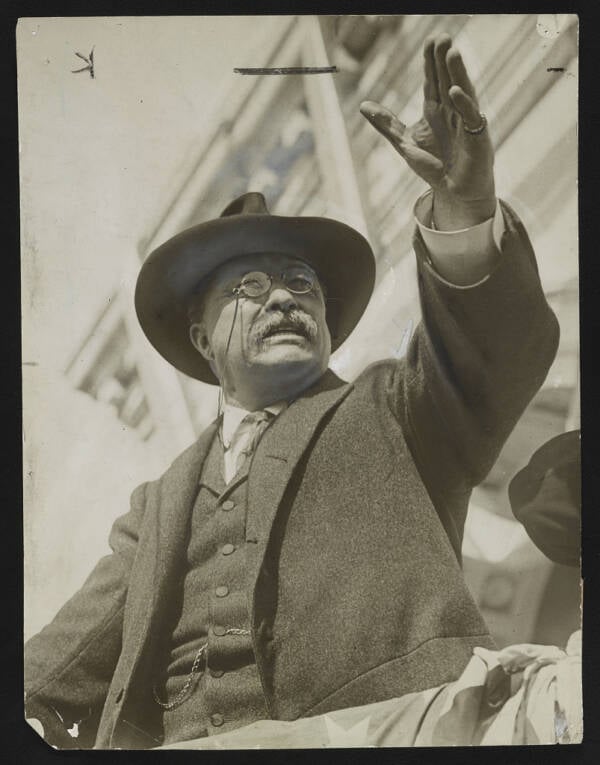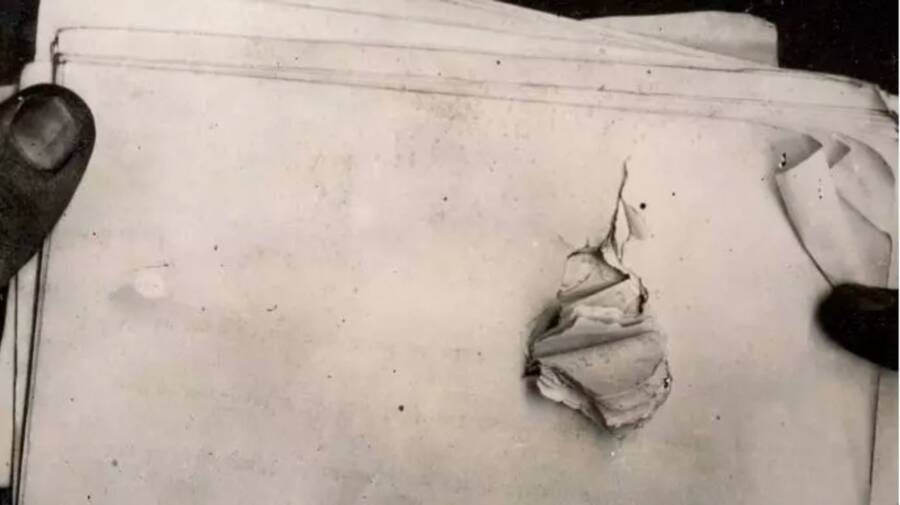How Theodore Roosevelt’s Speech Saved His Life

Library of CongressTheodore Roosevelt in 1912, the year that he survived an assassin’s bullet.
The presidents on this list all got lucky in one way or another. But perhaps none of them were quite as lucky as Theodore Roosevelt.
On October 14, 1912, the former president — then running for an unprecedented third term under the banner of the Bull Moose Party — set out to give a speech at the Milwaukee Auditorium in Wisconsin. En route, he crossed paths with a mentally ill saloon owner named John Schrank.
For some reason, Schrank had become convinced that Roosevelt had assassinated President William McKinley in 1901. And so Schrank waited with the crowd, then fired at Roosevelt with a Colt revolver.
But even though Schrank’s bullet hit its mark, it also hit Roosevelt’s overcoat, eyeglass case, and 50-page speech, which the former president had tucked inside his breast pocket.
“Don’t hurt him!” Roosevelt, shot in the chest, shouted at the furious crowd. Addressing Schrank, he asked, “What’d you do it for?”
Schrank said nothing, and Roosevelt ordered him away. Then, incredibly, Roosevelt insisted on continuing with his speaking engagement as planned.

Theodore Roosevelt Collection/FlickrTeddy Roosevelt was famously loquacious, which saved his life in 1912.
“Friends, I shall ask you to be as quiet as possible,” Roosevelt said to the stunned crowd. “I don’t know whether you fully understand that I have just been shot. But it takes more than that to kill a Bull Moose.”
He unbuttoned his vest to show his bloody shirt and added: “But fortunately I had my manuscript, so you see I was going to make a long speech, and there is a bullet — there is where the bullet went through — and it probably saved me from it going into my heart.”
Though his aides urged him to go to the hospital immediately, Roosevelt promised to give an abbreviated version of his original remarks to the crowd. He then spoke for nearly 90 minutes until he finally agreed to see a doctor.
In the end, Schrank pled guilty to the presidential assassination attempt and lived out the rest of his days in a Wisconsin state asylum.
Though Theodore Roosevelt lost his bid for reelection, he hadn’t lost his life. Still, he carried Schrank’s bullet in his chest until his death in 1919.





